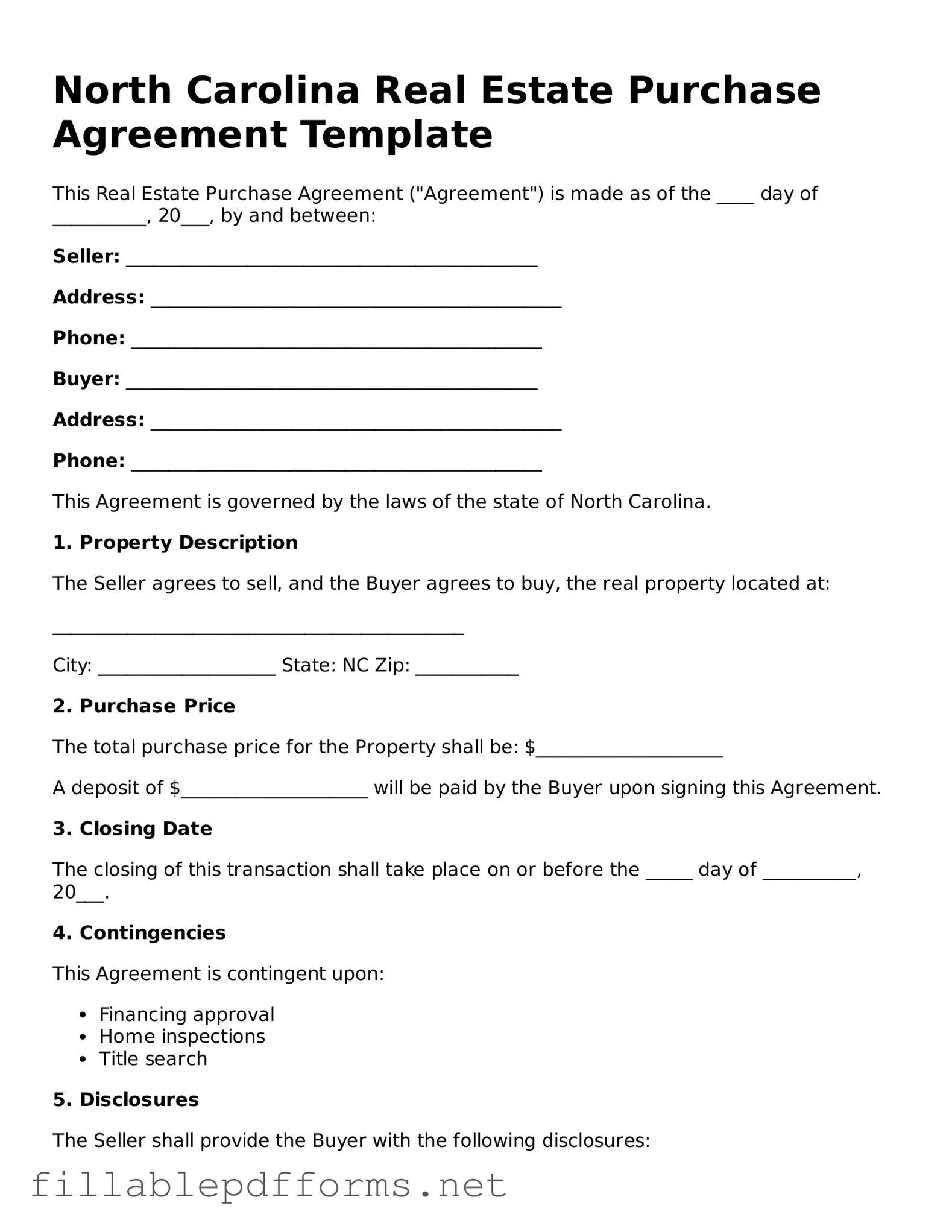Attorney-Verified Real Estate Purchase Agreement Form for North Carolina State
The North Carolina Real Estate Purchase Agreement is a legal document that outlines the terms and conditions for the sale of real property in North Carolina. This form serves as a crucial tool for both buyers and sellers, ensuring that all parties understand their rights and obligations. Understanding this agreement is essential for a smooth transaction process.
Launch Editor Here

Attorney-Verified Real Estate Purchase Agreement Form for North Carolina State
Launch Editor Here

Launch Editor Here
or
▼ Real Estate Purchase Agreement PDF
Almost there — finish the form
Complete Real Estate Purchase Agreement online fast — no printing, no scanning.